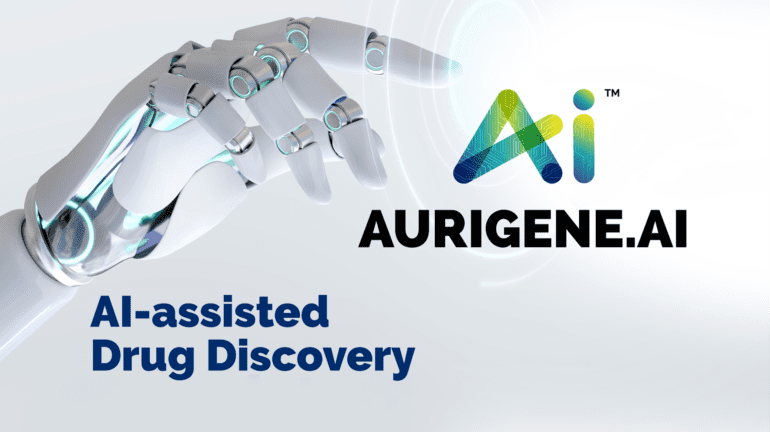- Aurigene Pharmaceutical Services introduces Aurigene.AI, an AI and ML-assisted platform for drug discovery.
- The platform integrates advanced simulation, AI models, and CADD, facilitating efficient project acceleration.
- Aurigene.AI features a comprehensive database of 180 million compounds and 1.6 million bioassay data points.
- Hosted on Google Cloud, the platform ensures scalability and data confidentiality.
- Validation studies show a 35% reduction in cycle time from design to testing.
Main AI News:
In a groundbreaking move, Aurigene Pharmaceutical Services, a leading contract research, development, and manufacturing services organization under the umbrella of Dr. Reddy’s Laboratories, has launched Aurigene.AI. This innovative platform harnesses the power of artificial intelligence (AI) and machine learning (ML) to revolutionize the drug discovery process, propelling projects from hit identification to candidate nomination with unprecedented speed and accuracy.
Aurigene.AI integrates cutting-edge physics-based simulation, generative and predictive AI models, and Computer-Aided Drug Design (CADD) into a single, cohesive platform. This unique approach empowers users to select the most suitable algorithms for their specific applications, enhancing efficiency and efficacy throughout the drug discovery journey. Moreover, the platform boasts a meticulously curated database comprising 180 million compounds and 1.6 million validated bioassay data points, continually expanding to serve as invaluable training data.
Hosted on Google Cloud, Aurigene.AI leverages a scalable infrastructure that ensures seamless handling of large datasets and efficient computation, all while upholding the utmost confidentiality of client information. This strategic partnership with Google Cloud further reinforces Aurigene’s commitment to delivering secure, state-of-the-art solutions to its clientele.
By seamlessly integrating AI and ML-based technologies with Aurigene’s core competencies in chemical design, synthesis, and bioassay assessment, Aurigene.AI promises to expedite the development of groundbreaking therapeutics. Validation studies conducted by Aurigene’s team of discovery scientists have demonstrated remarkable results, showcasing a 35% reduction in cycle time from chemical design to synthesis and testing.
Conclusion:
The introduction of Aurigene.AI signifies a significant advancement in the pharmaceutical research landscape. By leveraging AI and ML technologies, Aurigene is poised to disrupt traditional drug discovery methods, offering enhanced efficiency and accuracy. This innovation is likely to stimulate competition in the market, prompting other players to invest in similar AI-driven platforms to remain competitive and meet evolving industry demands.

